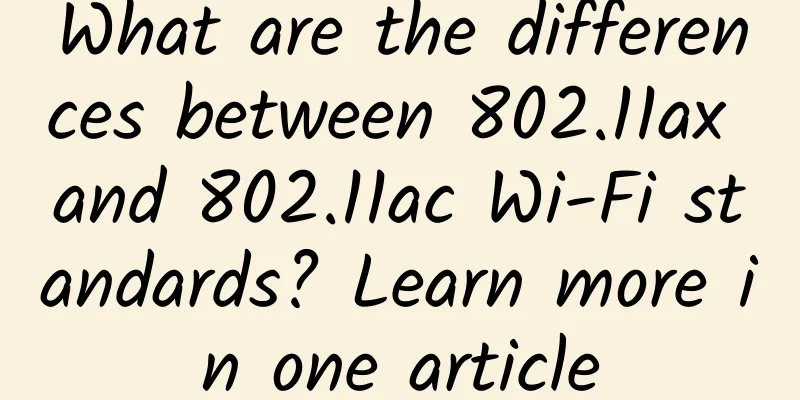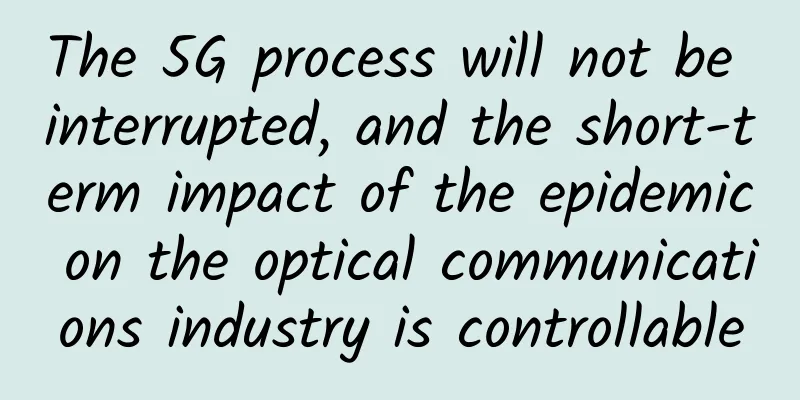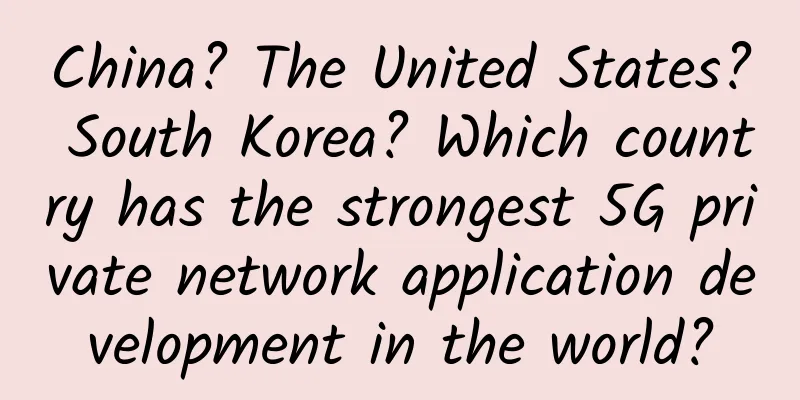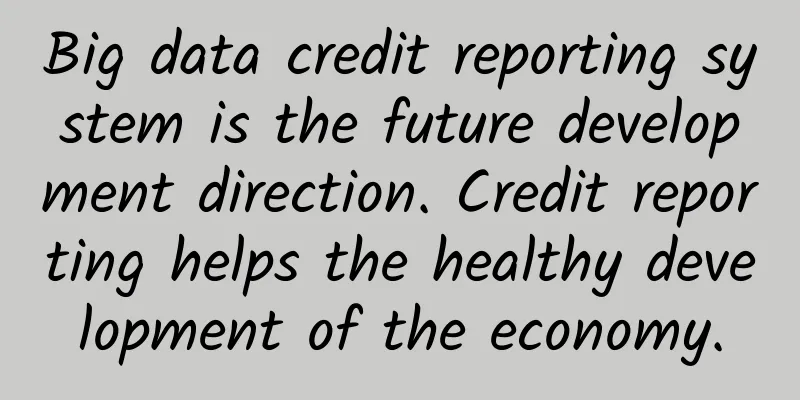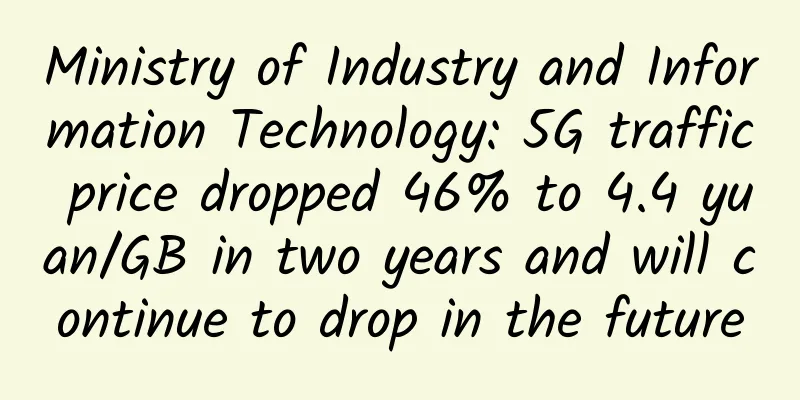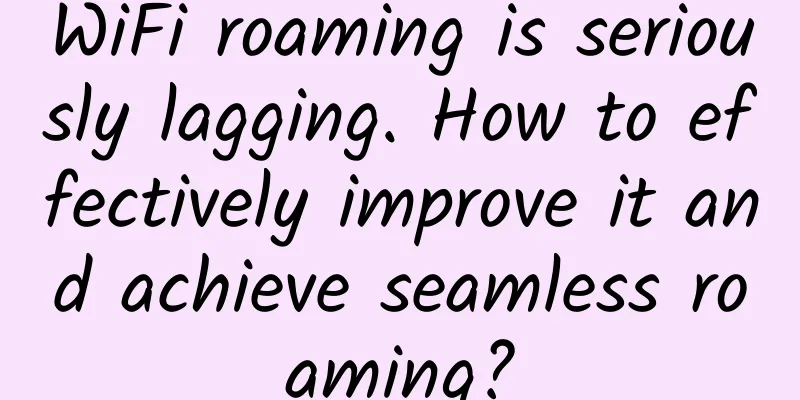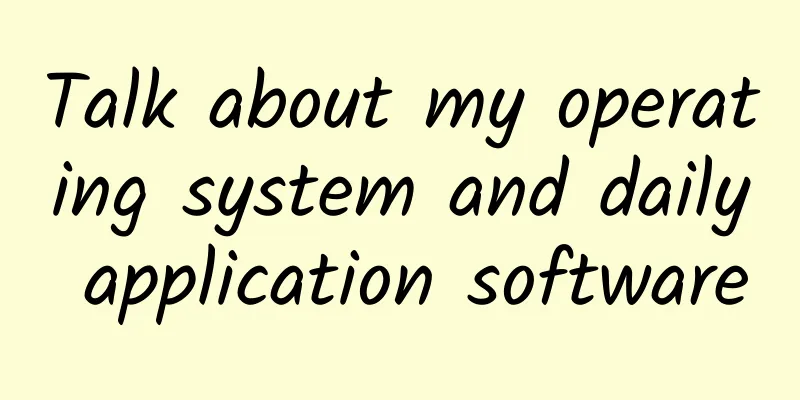Σco Time | The "new" foundation of digital economy, Huawei and Xinghai IoT create a sustainable growth smart park
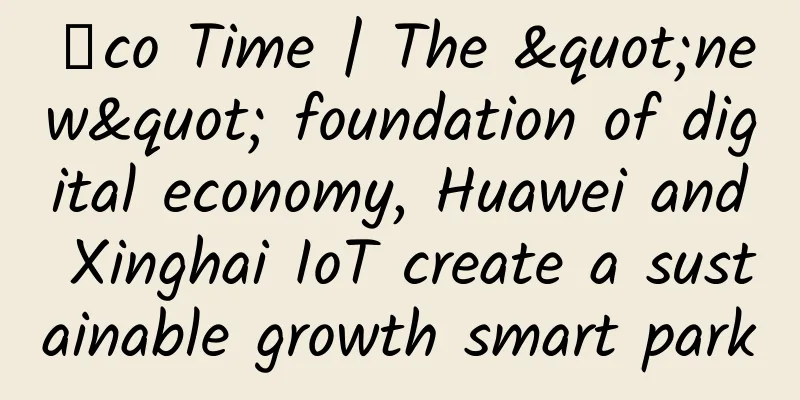
|
[51CTO.com original article] In the context of post-epidemic resumption of work and production, the digital economy has become a new engine for China's economic growth in the future. As a new carrier of the digital economy, smart parks are of great significance to the future transformation of new and old kinetic energy in industries and the innovative development of cities. Under the new infrastructure trend, how can park asset operating companies reshape park operations through digitalization, build smart, online, and ecological space service capabilities, and achieve digital breakthroughs in parks and overall smart upgrades? Recently, an online seminar with the theme of "New Foundation of Digital Economy, New Foundation of Real Estate Park" was held on the #Σco时间# live broadcast platform. Li Shuguo, CTO of Shenzhen Xinghai IoT Technology Co., Ltd., Shao Hu, General Manager of Huawei China Smart Real Estate and Building Business Department, Wang Guangyu, Director of Xinghai IoT Solutions Division and other guests attended the meeting. Through keynote speeches, interactive Q&A sessions and other sessions, they demonstrated the future construction direction and development trend of smart parks under the new infrastructure trend, and shared the successful practice of Huawei and Xinghai IoT working together to build smart parks. Li Shuguo, CTO of Shenzhen Xinghai IoT Technology Co., Ltd., first gave a brief introduction to the topic of this conference at the opening: As the real estate and construction industry with the most physical space, in order to find a smart path under the wave of new infrastructure, it is necessary to build a "super brain" (operation center) that matches the operation of building space, and it is necessary to build a "strong spinal cord" (IoT network system) that matches the 70-year life cycle of the building, and it is necessary to focus on "healthy nerves" (intelligent interactive applications) that match the "good life" of various types of buildings. Within the scope of new infrastructure, Huawei, which can provide the above-mentioned "cloud, pipe, and terminal" full-chain technical capabilities, will work together with China Overseas Property Xinghai IoT to create a sustainable smart park. Achieving digital breakthrough in the park based on Huawei's WoTu digital platform Shao Hu, General Manager of Huawei's Smart Real Estate and Building Business Department in China, then gave a speech entitled "How Smart Parks Can Achieve Digital Breakthroughs in the New Infrastructure Trend". He mentioned that smart parks are an important entrance and carrier of the intelligent world and are closely related to production and life. Traditional parks have always faced pain points such as weak security, high operating costs, serious energy waste, and poor service experience. Building smart parks through digital transformation is the key to solving the pain points of traditional parks. With the increasing maturity of digital technologies such as cloud computing, artificial intelligence, 5G, and the Internet of Things, the construction of smart parks has changed from "expected" to "feasible". Huawei's smart campus solution is derived from its own practice, relying on Huawei's product portfolio, based on Huawei Cloud, and in collaboration with ecosystem partners, it helps users build intelligent and standardized smart campuses. It not only sets an industry benchmark, but also brings the digital world into every campus, making intelligence within reach. Shao Hu said that although technologies such as artificial intelligence, 5G, the Internet of Things, and cloud computing are relatively mature, single-point technologies cannot help build a truly smart park, so a digital platform or container is needed to effectively carry these technologies and stimulate each other to maximize value. Based on this, Huawei proposed the fertile digital platform plan to efficiently encapsulate these capabilities, thereby achieving some effective integration between data, resources, and services, enabling customers' digital innovation, and helping the park achieve full connectivity, full integration, and full intelligence. Based on its own park digital transformation practice results and customers' actual business needs, Huawei's smart park digital platform has been applied in multiple scenarios. At the same time, Shao Hu also mentioned that park operations have their own professional particularities, so Huawei hopes to work with more partners to create valuable general park and industry park solutions for customers. He used cooperation cases with China Overseas Property, Vanke and other companies to illustrate how to jointly create a smart park environment that is suitable for living, business and industry. Build a digital hub to achieve overall smart upgrade of the park The real estate industry is in a period of transformation and change. Enterprises need to transform from development and sales business to asset operation and service. Technology empowerment has become an important direction for industrial transformation and a key growth point for real estate companies to find future performance. At the same time, new infrastructure has brought about the construction of smart parks. The field of urban construction will be one of the fastest-growing areas of intelligentization in China in the next five years. Based on this background, Wang Guangyu, Director of Xinghai IoT Solutions Division, delivered a keynote speech entitled "Building a Digital Hub to Realize Overall Intelligence - IOC Intelligent Operation Center Solution". Wang Guangyu mentioned that a smart park is not equal to a high-cost park, nor is it an accumulation of concepts and technologies, but rather a prediction and response to current and future needs. In the construction, we must adapt to the ever-improving technology, ensure that the overall planning is ahead of time, gradually implemented, and continuously improved and upgraded. He pointed out that the challenges of traditional park intelligence mainly face "four deficiencies": lack of experience, lack of data, lack of efficiency, and lack of display. In response to these pain points, in the planning ideas of smart parks, we should pay attention to building a unified platform, implementing smart management, innovating service functions, promoting the integration of management informationization and the Internet of Things, and establishing an image window to intuitively display the "wisdom" of the park. In the overall planning based on the digital platform, we should take the full life cycle operation of the smart park as the goal, and coordinate the planning and design from the four aspects of platform, network, hardware, and software. It is understood that in the technical architecture of the IOC platform, Huawei's "Wotu Digital Platform" is used as the base, and the group-level IOC interface is reserved. The digital platform has AI, big data, IoT and other middle-end capabilities, which is convenient for empowering the front end; various isolated intelligent subsystems are connected to the platform for linkage; an all-optical network is adopted, which is smoothly upgraded for the 5G era and supports the integration of multiple networks. The IOC Intelligent Operation Center can provide a wealth of information applications at the software level and improve management and operation efficiency. By building the IOC Digital Operation Center, a large number of intelligent systems, massive data, information and instructions are uniformly managed to create a "smart management hub" for the park, realizing the intelligent operation and efficient management of the projects under management. Wang Guangyu said that the IOC Intelligent Operation Center provides a wealth of information applications at the software level, which improves management and operation efficiency. The construction of the IOC Digital Operation Center will centrally manage numerous intelligent systems, massive data, information and instructions, becoming the "smart management hub" of the park, truly realizing the smart operation and efficient management of the projects under management. He focused on the main functions and application scenarios of IOC: First, IOC can comprehensively, intuitively and in real time monitor the overall situation of project operation; through the park management platform, the intelligent operation rules and standard management processes of the entire park can be configured. Second, the operation information and events of the park are upgraded to information management through IOC, and the work orders, processes and other information of the entire project are gathered and circulated on the management platform, forming real-time data statistics and inquiries, and can provide mobile APP to realize mobile online services and mobile office. Third, after monitoring alarms or discovering problems, abnormal automatic alarms pop up on the large screen, and the dispatch is processed on the supporting park management platform; in the event of an emergency or major incident, the park's operation situation can be fully monitored, and centralized command and dispatch can be carried out according to the preset emergency plan. Fourth, through the construction of a 3D virtual park through digital twin technology, various types of equipment and data are located with the park at the same time, and various types of main information of the park are visualized; various types of situation data can be queried by region, and the equipment point operation can be directly clicked to intuitively display the alarm location, etc. In general, the value of the IOC Intelligent Operation Center is concentrated in "four improvements": improving the quality of the park, improving data interoperability, improving management efficiency, and improving the image of science and technology. The IOC Intelligent Operation Center not only upgrades the park management from "traditional four guarantees" to "smart services", reduces positions without reducing service effects, and improves services without increasing operating costs, but also upgrades the data operation capabilities of real estate brand services, enabling real estate to become a provider of better life services. Conclusion As the basic unit of the city, the connotation of the park is constantly enriched and extended, and it has gradually become a spatial complex integrating the physical world, the human world and the digital world. In the future, the intelligent society can observe its clues, experience its forerunners and experiment with its frontiers in the smart park. Through innovative technical means, data silos can be broken, business linkage and innovation can be formed, and the park can eventually become a small smart world of "everything is sensed, everything is connected, and everything is intelligent". [51CTO original article, please indicate the original author and source as 51CTO.com when reprinting on partner sites] |
<<: Factors that affect OSPF neighbor relationships, OSPF neighbor issues: network and subnet mask
Recommend
How DevOps is shaping the future of networking
Since its advent in 2009, the DevOps philosophy h...
The "new strategies" of the three major operators, a battle between masters of all kinds of skills?
With the belated conclusion of the 2021 China Uni...
Distinguish between fat AP and thin AP, full WiFi signal coverage will be easy
Wireless AP is an access point for users who use ...
ReadyDedis: 50% off on all VPS, 1GB memory package starting at $2 per month, 8 data centers available
ReadyDedis is a foreign VPS business established ...
China Minsheng Bank and Huawei reach strategic cooperation to jointly build a digital smart bank
[51CTO.com original article] On February 8, China...
spinservers: $199/month - 2*E5-2696v4, 512G memory, 4*1.6T SSD hard disk, 1Gbps unlimited traffic, Dallas data center
spinservers offers special discount codes for two...
5G has been developed for three years, why are people still using 4G?
I remember that in 2018, there was a lot of news ...
Report shows 33% of enterprises plan to deploy Wi-Fi 7 by 2024
Wi-Fi 7 is emerging as one of the most important ...
ColoCrossing new bare metal cloud: $20/month-4 cores/8GB/120G SSD/20TB@1Gbps
ColoCrossing recently launched the Bare Metal Clo...
UFOVPS has 10% off for monthly payment and 20% off for annual payment, top up 500 and get 30 free, CN2 GIA lines in the US/Japan/Hong Kong are available
UFOVPS's latest promotion will only last for ...
In the ranking of domestic mobile data usage, Tibet ranks first and Shanghai ranks second to last
Recently, the Ministry of Industry and Informatio...
spinservers San Jose China Telecom Network VPS Simple Test
Some time ago, I shared the information about spi...
Network security programming: C language reverse loop structure analysis
[[392807]] The loop structures of C language incl...
20 billion daily traffic, Ctrip gateway architecture design
20 billion daily traffic, Ctrip gateway architect...
RackNerd: New Year 2024 series starting at $10.99/year, multiple data centers in Los Angeles, San Jose, etc.
RackNerd New Year 2024 packages are divided into ...
